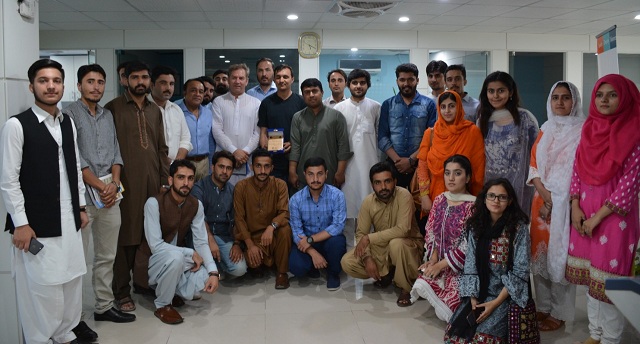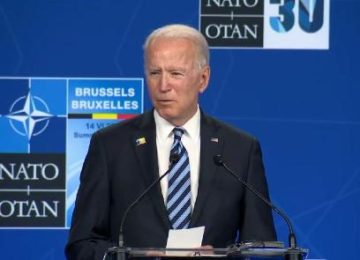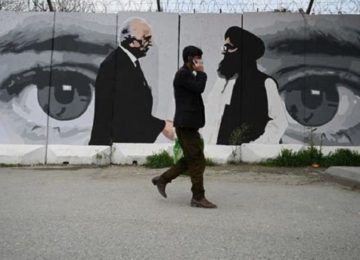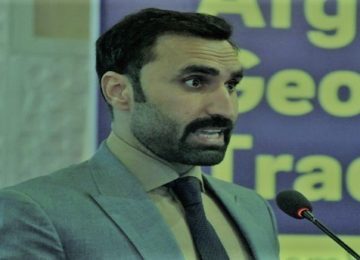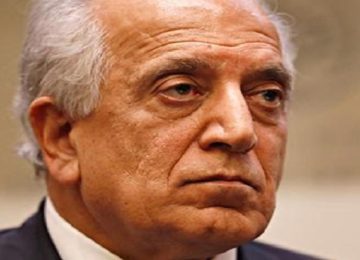July 12, 2019
Positive news seem to be pouring in on the Afghan peace front from different capitals of the world; Doha, Kabul, Beijing, and Washington. There are three major developments in connection to the Afghan peace process: US-Taliban talks along with intra-Afghan dialogue, the change in the mindset in Kabul towards Islamabad, and the near willingness of the regional and global powers to resolve the conflict, according to senior journalist Hassan Khan, who was speaking at Afghan Studies Center’s 24th Pak-Afghan Youth Dialogue to youth from the two countries on July 10, 2019, in Islamabad. The dialogue, on the theme, “Pak-Afghan Détente and the Afghan Peace Process,” was attended by 27 young Afghans and Pakistanis belonging to Sukkur, Peshawar, Kohat, Hangu, Taxila, Mansehra, Rawalpindi, Islamabad, Kabul, Kandahar, Mazar-e-Sharif and Jalalabad.
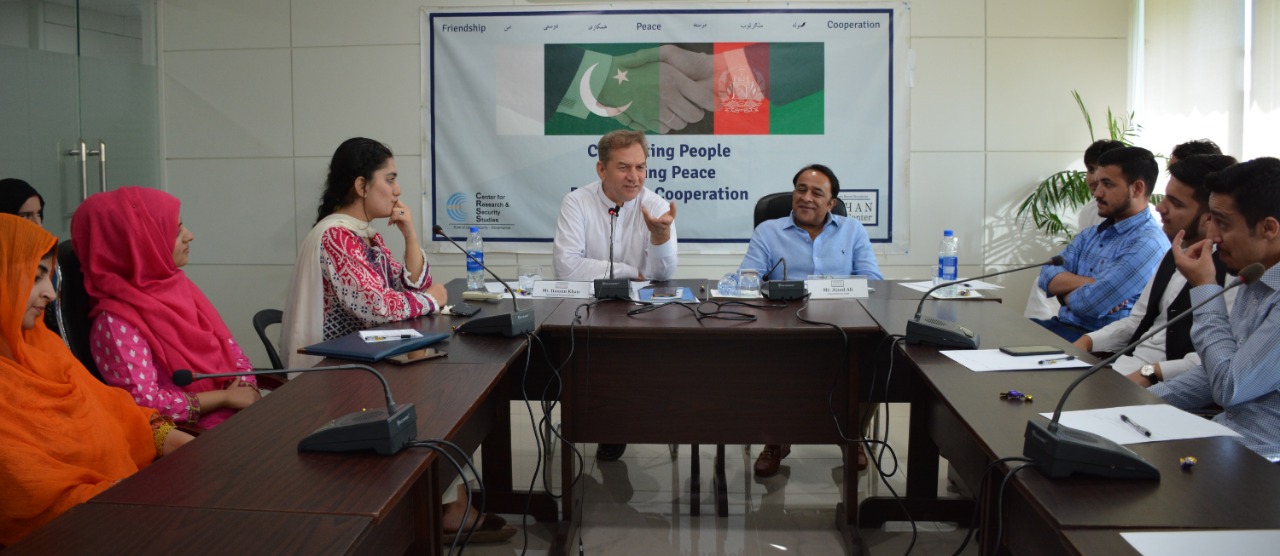
Hassan Khan stated that a two-day intra-Afghan dialogue kicked off in Qatar’s capital, Doha, on June 07 and 08, which was attended by more than 50 delegates from Afghanistan – including women, former jihadi commanders, civil society and pro-government factions – and 17 representatives of the Taliban. The dialogue was co-hosted by Germany and Qatar in a bid to play their part for the final push for peace in Afghanistan. The intra-Afghan dialogue, for the first time, was not objected by Kabul; indeed, it was appreciated by President Ghani’s spokesman Sediq Sediqqi. Though, at the same time it echoed that face-to-face negotiations between the Kabul regime and the Taliban are inevitable to end the prolonged crisis in the country.
He further said that, during the same dialogue, surprisingly, in an audacious move, the rival factions of Afghans, including the Taliban, agreed on a roadmap for peace, probably accelerating the resolution of the 18-year long conflict. The non-binding agreement comes as the US and Taliban continue to negotiate an American withdrawal. The most significant points of the agreement were that Taliban would reduce violence – not attacking public places and not assaulting soft targets and also that women will be guaranteed all the due rights within the ambit of Islam in the post-peace Afghanistan. This move is significant in the sense that it signals a security guarantee, in case the US-Taliban deal materializes.
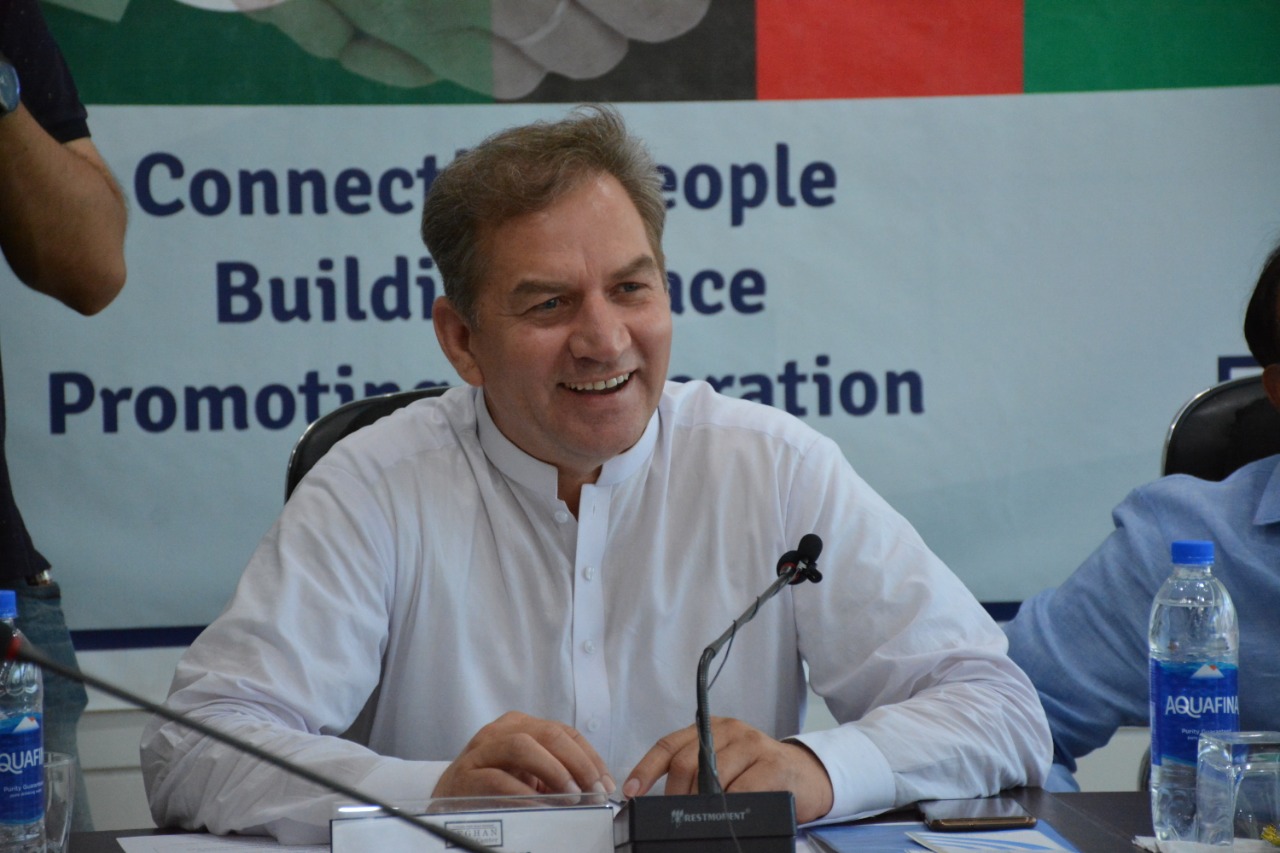
On Pak-Afghan front, after four years of strained relations, President Ghani finally landed in Pakistan on June 27 on a two-day visit. He had a one-on-one meeting with Prime Minister Imran Khan later that day. According to a statement by the Prime Minister Office, both leaders “agreed to open a new chapter of friendship and cooperation between Pakistan and Afghanistan, based on mutual trust and harmony for the benefit of the two peoples and countries and for advancing the cause of peace, stability and prosperity in the region”. It was after a very long time that Pak-Afghan state level meetings were held in an exceedingly cordial and positive environment and where the discussions focused on harnessing peace in Afghanistan and enhancing economic cooperation between both neighbors.
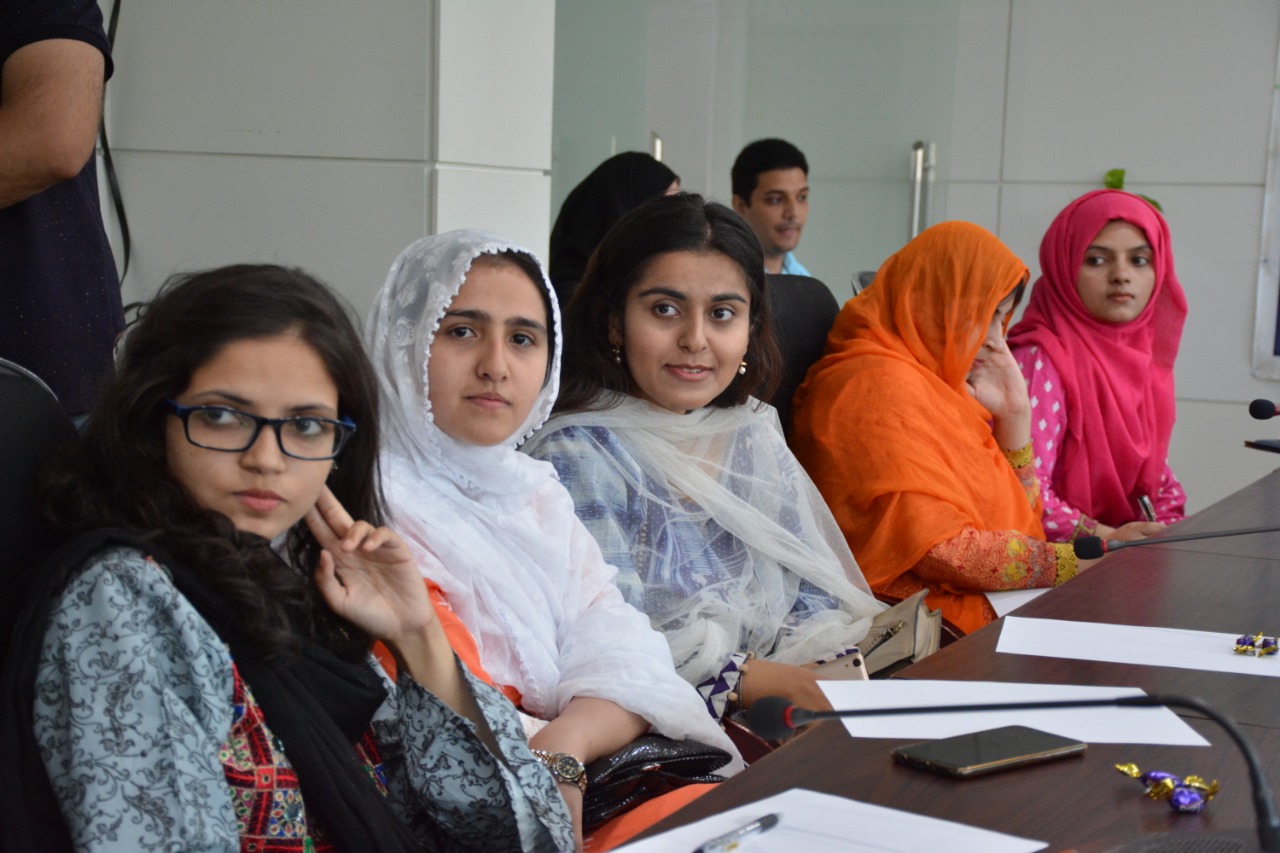
Two days prior to that, dozens of influential Afghan political leaders and top Pakistani officials in Murree agreed to build trust between the two countries and boost co-operation in various sectors. More than 50 politicians from Afghanistan attended the Afghanistan Peace Conference on June 23. The Afghan attendees mostly came from the opposition, including several candidates running for president in the September elections. This, too, was not objected by Kabul; resonating loudly that now Afghans, no matter what camp/group they belong to, keenly wish for peace, Khan told the participants.
The depiction of the unity among Afghans also coincides with the convergence of interests of all major powers – all are on the same page now, regarding Afghanistan. America wants to roll back the 18-year-long conflict. China and Russia are also playing a very positive role in the facilitation of the peace process. Islamabad, in this regard, has a crucial role to play. Pakistan enjoys cordial relations with both Russia and China and, recently, US also asked for assistance in bringing peace in Afghanistan. Islamabad is contributing positively, as its efforts are recognized by Washington, Kabul, and Beijing, along with some other countries, he said.
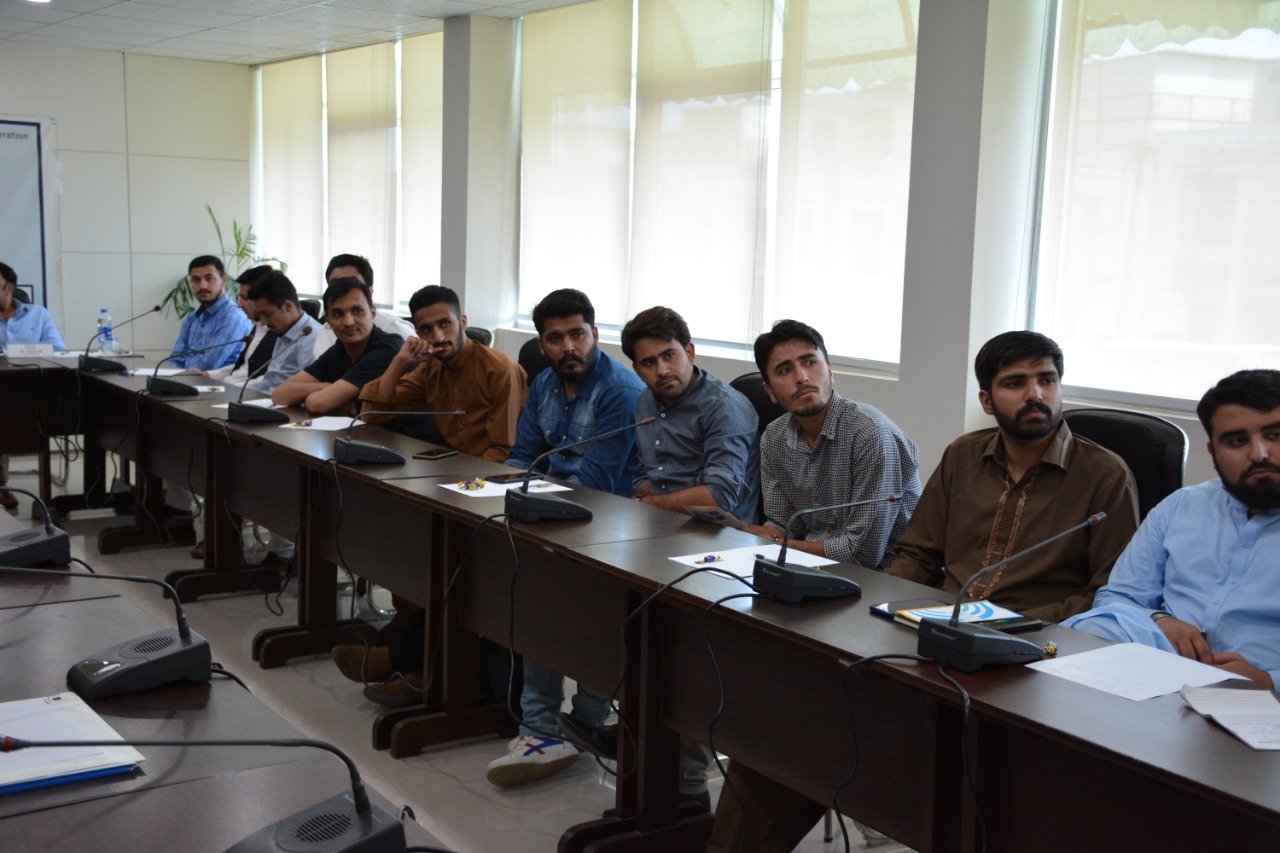
He further said that the current times are offering a window of opportunity which all stakeholders seem to realize and are working to avail. Else, humanity will continue to suffer, halting in its way the sustainable development in the whole region due to the negative spillover effects from conflict-ridden Afghanistan. Peace in the whole region is linked to peace in Afghanistan. All eyes are on the coming days; perhaps in the anticipation of the first concrete draft of the peace deal in September.
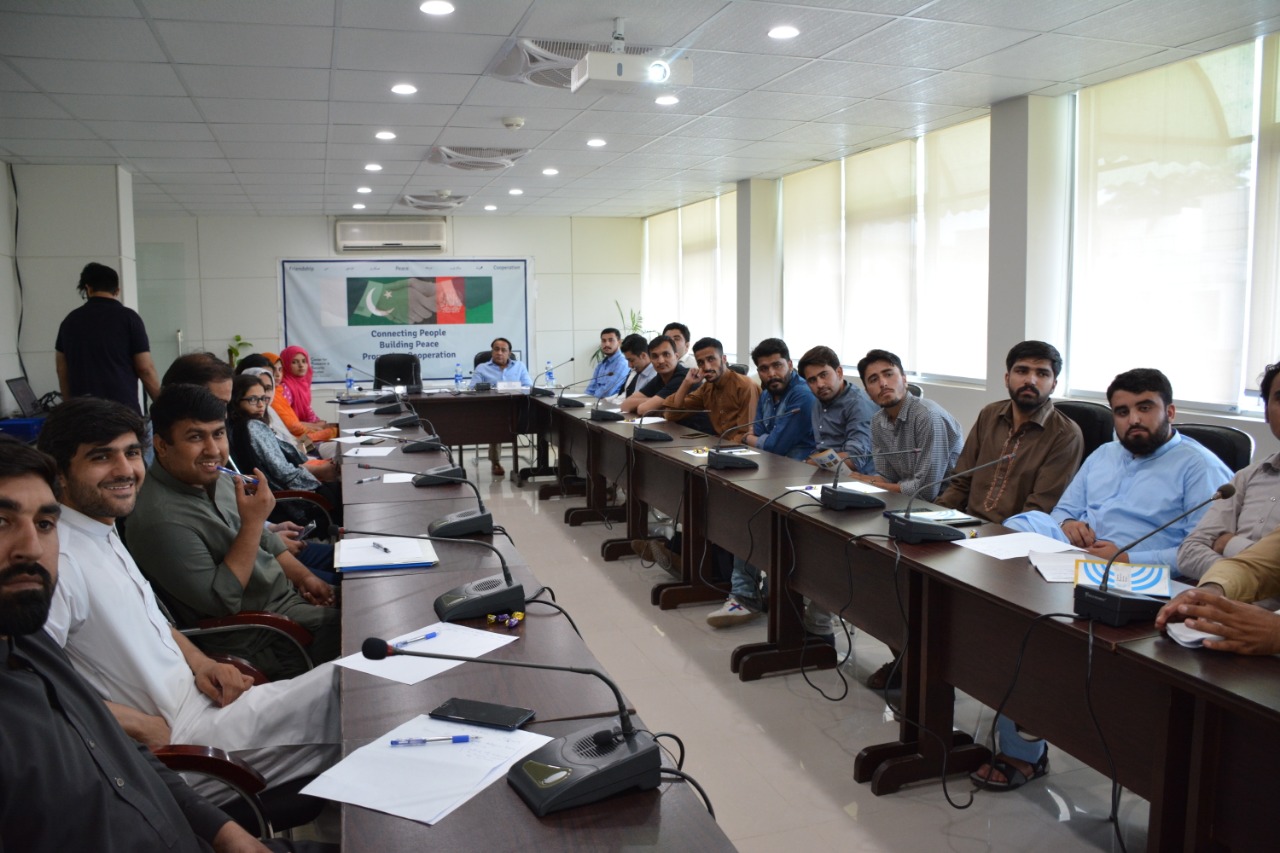
In the interactive Q & A Session, youngsters from Pakistan and Afghanistan posed several questions from the chief guest, including: When would the US start pulling out its troops? Why would the US want to leave Afghanistan and not continue its containment of China and Russia in the neighborhood? How can Taliban morally engage in peace talks when they are carrying out terrorist attacks at the same time? Some female students showed concerns about the future of women rights in post-peace agreement Afghanistan.
Hassan Khan responded to these questions candidly. According to him, US wants to roll back 18-years long conflict as it has become a useless war for Washington – it’s a stalemate for so long. So, there is no point in continuing it. Though, President Trump has recently stated that America would leave behind strong intelligence to keep a check for its own safety. On troops’ pull-out, Khan was of the view that at first, there has to be an intra-Afghan settlement and then US troops may start withdrawing. This should be done to ensure that no chaos emerges in the post-peace Afghanistan. Khan further stated that Taliban may carry out attacks to negotiate from the position of strength; though engaging in dialogue is always better. As we can see, they recently agreed on reducing violence during intra-Afghan dialogue in Doha. Taliban also agreed on not targeting civilian institutions and public places. Responding to the concern shown about women rights by female participants, Khan said that there is a lot of change in the language and attitude of the Taliban. They seem more flexible and agree on safeguarding all rights of women within the Islamic ambit. This is a very positive development and we must hope for better, Khan added.
Earlier, CRSS Project Director Aized Ali introduced Hassan Khan and told the participants that the second speaker Tahir Khan, also a senior journalist, could not join as he was in Doha to cover the US-Taliban and intra-Afghan talks. Aized Ali also apprised the participants about the ongoing CRSS; Pak-Afghan Track 1.5/II Initiative ‘Beyond Boundaries’ aimed at bridging the gulf of mistrust and improving bilateral relations between Pakistan and Afghanistan. So far there have been 16 high level meetings between the two Pak-Afghan influencers’ groups, mainly in Kabul and Islamabad, but also in other major cities such as Karachi, Lahore, and Mazar-e-Sharif, since October 2015. He told the participants that the Afghan Studies Center (ASC) emerged from the implementation of the recommendations of these meetings. ASC has aimed to provide the youth of both countries a platform since its inception in April 2017 to inculcate critical, creative, and out of box thinking and to dispassionately interact and exchange ideas as they emerge as future leaders and ambassadors of peace. The initiative now has alumni of over 700 members from its 23 youth dialogues and 12 youth training workshops.
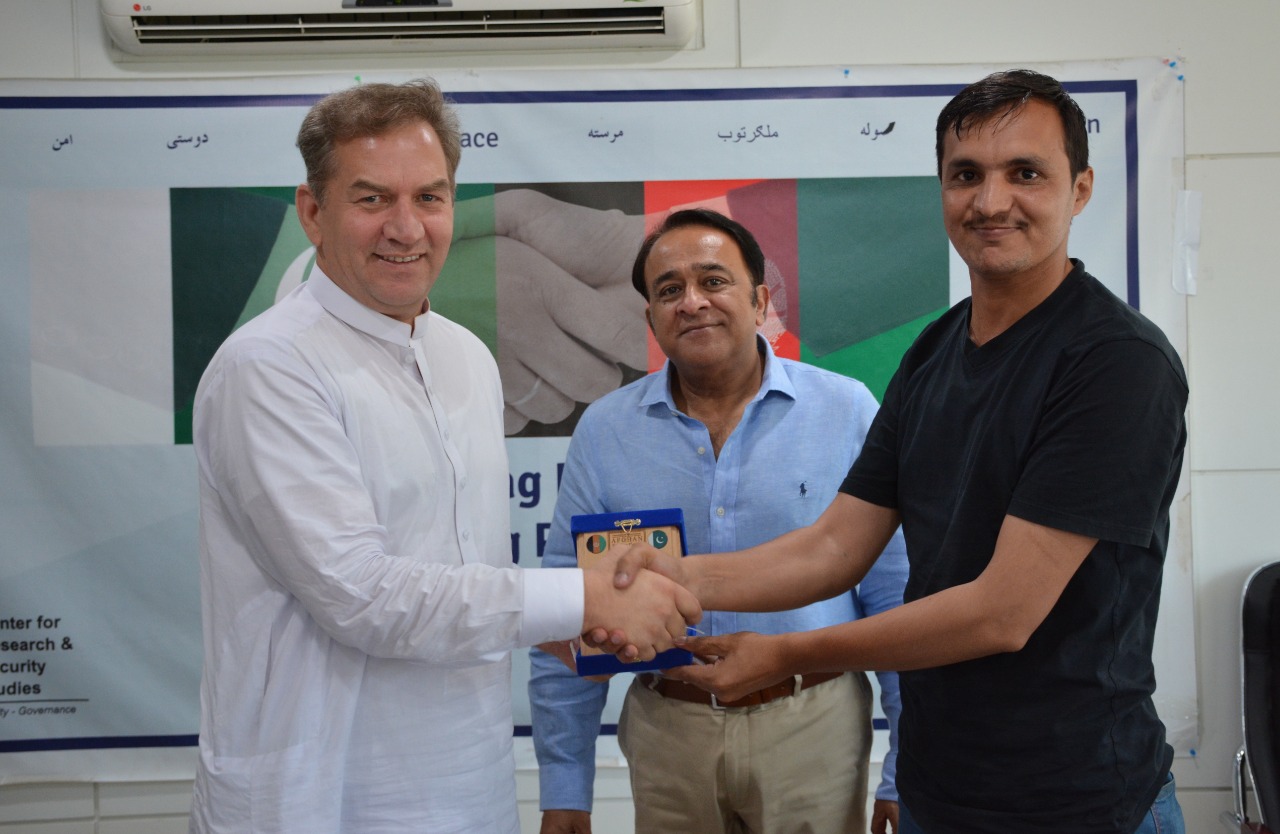
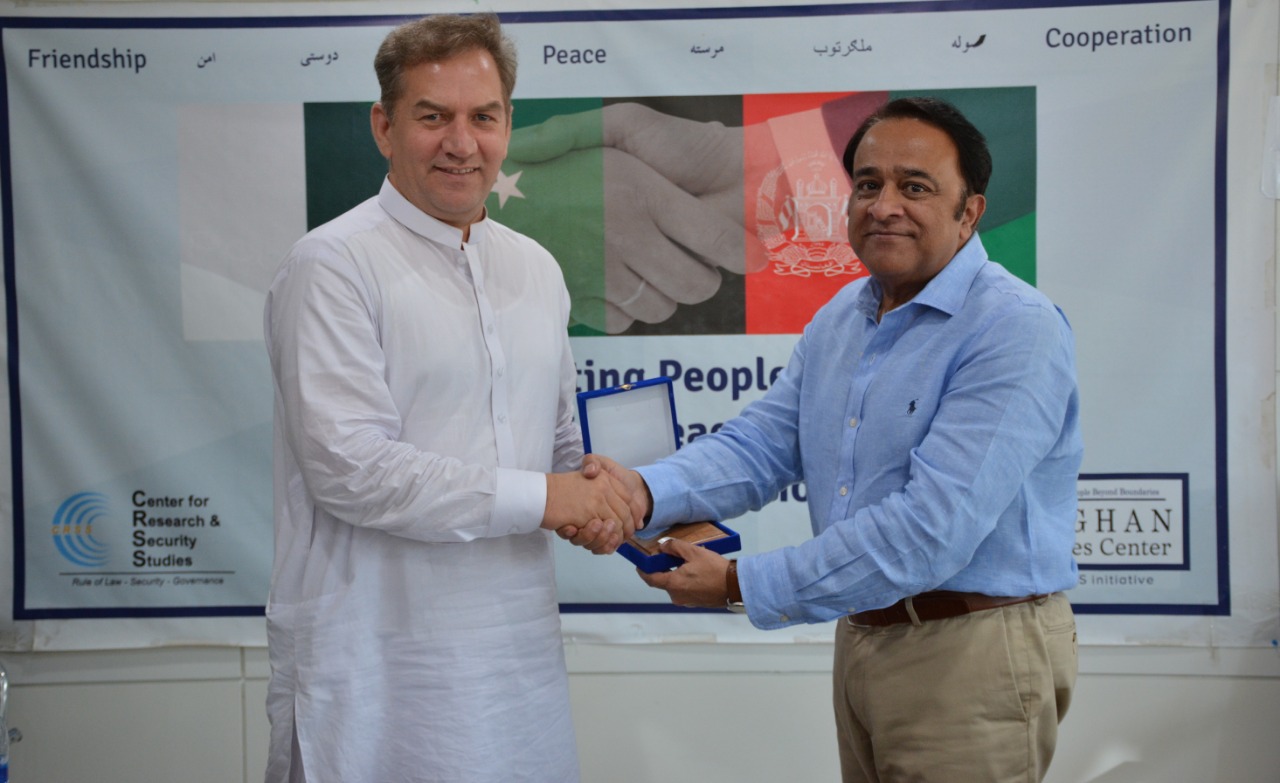
At the end, the ASC team nominated Ezatullah Zakhilwal from Kabul, Afghanistan as the Pak-Afghan Youth Ambassador for the months of July and August 2019. He was then presented a shield by the Chief Guest. Project Director Mr. Aized Ali also presented an honorary shield of appreciation to the Chief Guest, Hassan Khan. The session ended with a group picture.
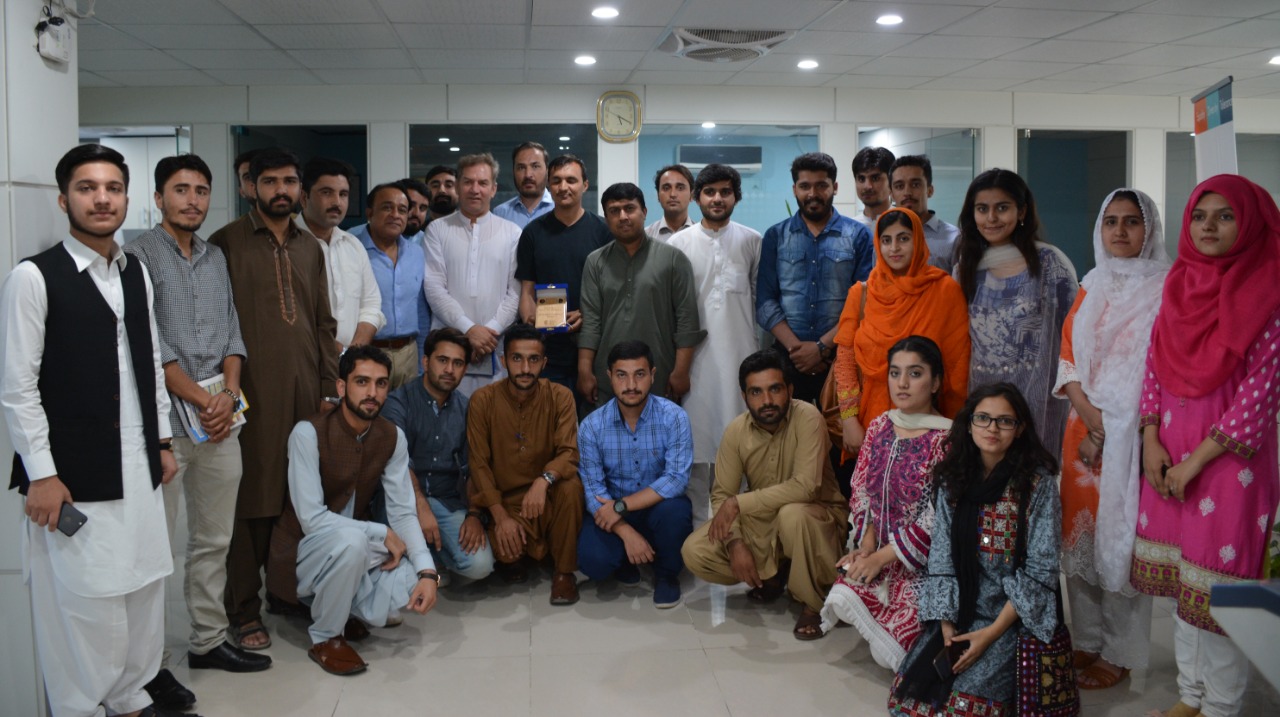
© Center for Research and Security Studies (CRSS) and Afghan Studies Center (ASC), Islamabad.



